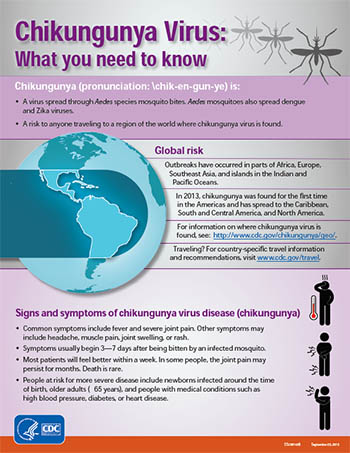
In cases of chikungunya infection, symptoms may be similar to those of dengue fever or Zika virus. People should see a doctor, especially if symptoms are occurring in a recent outbreak. If you are experiencing joint pain, muscle pain, or rash, your doctor will check your blood for signs of the virus. Asymptomatic people who do not have a history of the disease are not at risk.
Although this virus rarely causes death, it can cause serious symptoms. The fever is usually gone in a week, but joint pain can last for months. About 20 percent of patients with chikungunya develop persistent aches and pains after the initial infection. For these patients, physiotherapy can be helpful. However, if your symptoms do not subside after the initial treatment, you should seek medical attention.
The most common symptoms of chikungunya are fever, joint pain, and redness. The pain may be so severe that it lasts for months or years. Some people may suffer long-term joint pain. In rare cases, death may result. Currently, there is no vaccine or antiviral drug to prevent chikungunya. The only way to prevent a chikungunya outbreak is to avoid mosquito bites and to seek medical care as soon as possible.
The virus has been detected in countries across South East Asia and Southern Africa. Several distinct strains of chikungunya have been identified. There is an African strain that has survived for centuries due to the presence of monkeys and wild mosquitoes. In Asia, chikungunya is the main cause of epidemics in many Asian countries and has the potential to infect humans in the near future.
Although symptoms of chikungunya are rare, they can be debilitating and even fatal. Symptoms of chikungunya range from joint pain to fever. Although chikungunya disease is rarely fatal, symptoms can last for months or years. The name Chikungunya comes from the Makonde language, meaning "leaning upward". The slouched appearance of people with this infection makes walking even more difficult.
The health website astronomia2009.org.mx
explains that although chikungunya is usually mild and rarely fatal, symptoms can last for months. The disease can cause joint pain and is not contagious. It is best to avoid contaminated areas of the world. Because types of chikungunya disease persist in people, they can be transmitted from person to person. The disease is often transmitted through mosquitoes. It has also been reported in regions with colder temperate climates.
Symptoms of chikungunya include joint pain and fever. In severe cases, joint pain can last for months or even years. The disease can also lead to death. There is no vaccine or antiviral drug to prevent chikungunya, but treating symptoms can be difficult and time-consuming. Infected people may require multiple prescriptions or even a hospital stay.
The virus is a single-stranded positive sense RNA virus with three major genetic lineages. The chikungunya virus is found in Africa and Asia. It is also widespread in Europe. In 2007, a large outbreak of chikungunya occurred in the Indian Ocean. Several hundred cases of the disease have been reported in the United States.
Symptoms of chikungunya virus infection may include fever and joint pain. In severe cases, the patient may experience nausea, vomiting, or a maculopapular rash. A blood test is the only way to diagnose chikungunya. There is no vaccine or antiviral drug to prevent chikungunya. Symptomatic infections are the primary signs of chikungunya.
Symptoms of chikungunya disease types are mild to moderate and may be mistaken for dengue or Zika virus. If a person has chikungunya fever, the symptoms usually include joint pain, muscle pain, and a fever. CHIK symptoms will start three to seven days after the mosquito bite. Infected individuals can be infectious to mosquitoes for up to seven days before symptoms show. They cannot transmit the virus to another human without the aid of protective clothing or nets.
After the initial week of illness, patients with chikungunya should avoid mosquito bites for at least a week. During this time, the virus may circulate in the blood of a person, so mosquitoes can carry the virus from the patient to them. As a result, the virus can be transmitted to other people. Infections with chikungunya are caused by a number of different organisms.